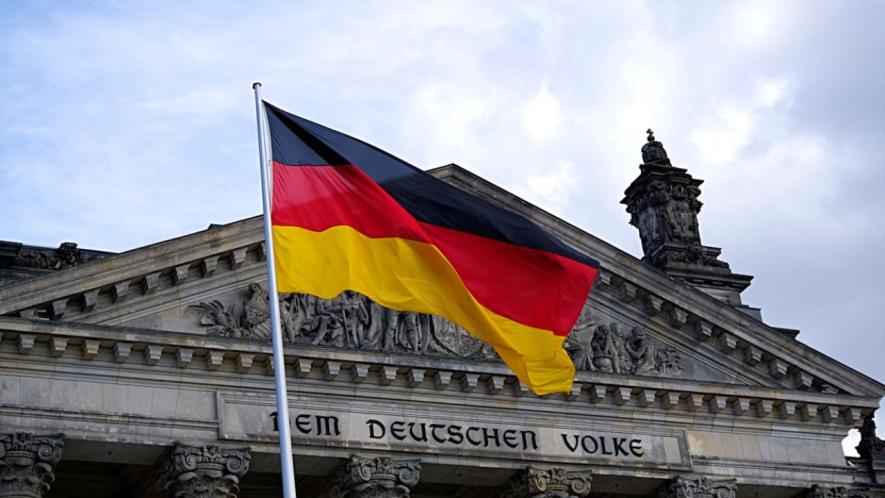German Election, Migration Debate and Indians

Image Courtesy: Pexels
Germany is abuzz with the upcoming election (February 23) in which the country’s voting population will elect its 21st Bundestag. Of all the political agendas that different political parties across ideological spectrum have, migration appears to be central point of contestation. The subject of migration could be a game changer in the outcome of this election.
Germany’s conflicted relationship with the subject of migration is not new. On multiple occasions, various German governments have showed clear intentions urging a section of the population with shared history with Turkey to return to where they came from now that the post-WWII nation building period was over, popularised slogans like Inder versus Kinder (Our children versus the Indians) when the then Social Democrats (SPD) government introduced the Green Card Scheme in 2000 to invite IT professionals from India to work temporarily in Germany, and in recent times has reached its peak with the growing popularity of the neo-Nazis (Alternativ für Deutschland or AfD).
What media, popular debates and political narratives term as “migration crisis” is implicated in the overall socio-political temperament of the country that clearly does not want refugees.
Located in the larger political context of “Russia-Ukraine” and “Israel-Palestine”, Germany’s ambivalent policy and attitude towards migrants is well established. A general cloud of Islamophobia looms large and anti-migrant sentiments mainly refer to the prohibition of undocumented displaced people from Islamic regions fleeing a war from entering the German territory.
Interestingly, the rise of Germany’s anti-migrant sentiment is contemporary with the sitting German government’s pro-migration policy toward “skilled migration”. Due to slow birth rate and a growing elderly population, Germany is in dire need of highly qualified professionals to live and work in the country, generate high income and pay taxes, so that the government can continue to uphold the promise of the welfare state and ensure old age pension.
Consequently, while the German state demonstrates an anti-migrant attitude at large, their active policy-making and legislative innovation to bring in skilled migrants from outside Europe to live and work in Germany is noteworthy. This implies that Germany wants controlled migration in which there is no umbrella policy toward migrants but the desire to allow only those profile of people from the third countries who bring direct and immediate benefit to the country’s economy.
This clear preference for skilled migrants has brought 1.5 lakh Indians to Germany in the past five years and the number continues to grow. Indian migrants in Germany constitute a classic case of white-collar migration and are predominantly so-called highly skilled migrants and students enrolled in higher education programmes in German universities.
Going by the data released by Institut fuer Deutschen Wissenschaft, IW-Report 1/2022, between 2010 and 2020, the total number of Indians in Germany (57.6% of whom are white-collar immigrants) has increased from 42,000 to 1,59,000. According to the BAMF (Federal Office for Migration and Refugees in Germany), currently there are about 246,125 Indians living in Germany. Also, percentage of Indian students joining German universities has gone up from 25,149 in 2021 to 42,753 in 2024 (Source: DeStatis 2024).
To put things into perspective, the maximum number of skilled migrants in Germany and the maximum number of foreign students enrolled in German universities at the moment are from India. In 2025, Indians constitute the seventh largest immigrant population in Germany (Statista.de).
Germany is standing at the crossroads of the migration debate in which, on the one hand, there is a growing anti-migrant sentiment and on the other hand, there is a willingness to continue inviting more skilled migrants. Accordingly, Germany has initiated several bilateral ties with India, including initiating new migration pathways like the Skilled Migration Act, Program Triple Win, while the EU Blue Card and Germany’s own Chancenkarte continue to be the popular and pro-migrant legal frameworks favouring skilled migration from India.
Despite such pro-migration policies and legal structures, it is hard to overlook the growing anti-migrant sentiment in the country coupled with a rising popularity of the AfD. Going by the latest media reports and opinion polls, AfD is likely to be the second in line after the Christian Democrats (CDU) and there are already indications that the two parties could ally.
Such developments could bring multiple consequences for the Indian migrants in Germany and raise several questions. Will Indians as skilled migrants continue to remain as desirable as good migrants if AfD becomes the main opposition after this election? Will they still want Indians as a group of PoCs (People of Colour) with access to economic and social capital continue to live and work in Germany? How safe are the Indians likely to feel in an immigrant country with strong Nazi past and increasing neo-Nazi present under such circumstances?
The future of Indian migrants and the formation and expansion of the Indian diaspora in the country depends on how Germany addresses the migration issue in general because the government’s attitude deeply conditions a people’s common knowledge. In the context of an increasing level of racism in Germany, will the common people in Germany consider Indians a threat?
In addition, currently, the primary focus of the German government is on the arrival of the skilled migrants. Will the next government think about settlement of these skilled migrants or will they be content with circular migration that responds to their immediate labour shortage? Under such circumstances, will Germany continue to remain a corridor for Indians to the global migration network or will Indians choose Germany as a destination after all?
It must be borne in mind that once a migration pathway opens, those who are not the most desirable migrants also move. Indian migrants in Germany so far are mostly Hindu migrants or at least non-Muslim migrants. What happens when more non-Hindu migrants from India move to Germany? How will that be located within the larger debate of Islamophobia in the host country? What will be the attitude of the German government toward those migrants from India who are not migrating as a part of (potential) skilled migration?
Amrita Datta is the author of “Stories of the Indian Immigrant Communities in Germany: Why Move?”. She is based at Bielefeld University in Germany. The views are personal
Get the latest reports & analysis with people's perspective on Protests, movements & deep analytical videos, discussions of the current affairs in your Telegram app. Subscribe to NewsClick's Telegram channel & get Real-Time updates on stories, as they get published on our website.
























